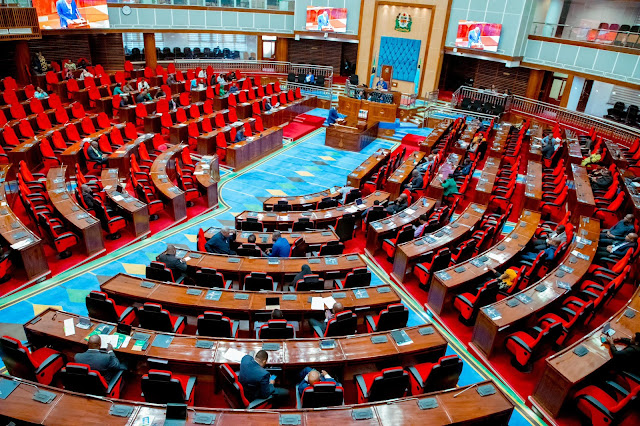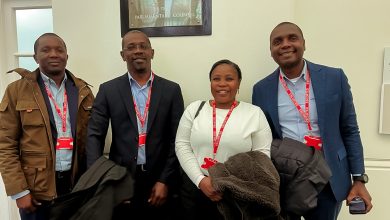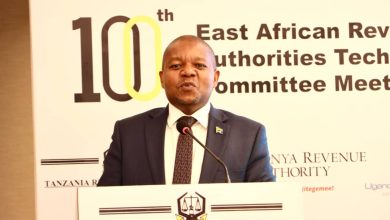Legislators seek broader tax base

DODOMA: MEMBERS of Parliament have called on the government to intensify its efforts to widen tax base and tax collection in order to effectively achieve the country’s development goals.
In its recommendations on the upcoming financial year’s budget proposals, tabled by the government last Thursday, the Budget Committee highlighted several persistent challenges hindering revenue growth.
The committee underlined the urgent need to broaden the tax base, particularly by targeting the vast informal sector and underperforming areas such as Small and Medium Enterprises (SMEs).
Committee’s Chairperson, Oran Njeza said although SMEs account for 95 per cent of all businesses in Tanzania and contribute 35 per cent to the national GDP, their contribution to tax revenue remains relatively low, estimated at only 20 per cent.
“The government must enhance registration and compliance, particularly among SMEs, if it is to realise the full potential of domestic revenue,” Mr Njeza stated.
Mr Njeza said one of the key issues raised affecting tax revenues is the low number of active taxpayers, noting that as of December 2024, there were 2,467,049 registered taxpayers, comprising 257,993 public entities and 2,209,056 individuals.
“However, only 687,565 of these were active, representing just 27.89 per cent of the total. The committee called for urgent action to improve taxpayer engagement and encourage voluntary compliance under the national slogan Our Tax, Our Development,” he said.
The committee highlighted the informal economy, estimated by the World Bank to account for 54 per cent of the national economy, as a key area with the potential to generate significant revenue and bolster the government coffers.
Mr Njeza pointed out that many small-scale traders and entrepreneurs opt to operate informally due to what they describe as an unfriendly business environment that offers little incentive to formalise operations.
He noted that the presence of multiple regulatory authorities discourages formalisation, as many businesses reportedly avoid registration due to the numerous fees, levies and penalties imposed—factors that significantly raise the cost of doing business.
The committee proposed a comprehensive review of the current tax payment procedures and the rates imposed, with the aim of simplifying the system and fostering a culture of voluntary compliance.
Contributing to the discussion, Ms Neema Lugakingira (Special Seats, CCM) stated that out of every 10/- circulating in Tanzania’s economy, 6/- are held within the informal sector.
ALSO READ: PM pushes for broader tax base
She urged the government to take steps toward formalising informal businesses in order to broaden the country’s tax base.
She stressed the importance of supporting the growth of small businesses and startups, proposing an extension of tax holidays from the current six months to three years.
“By promoting the growth of small businesses, we’ll create a large group of taxpayers by bringing currently informal businesses into the tax system,” she said, while also urging the government to explore alternative tax avenues and introduce new forms of taxation.
Ms Najma Murtaza Giga (Special Seats, CCM) urged Tanzanians to fulfill their tax obligations, insisting on the need for honesty and fairness in both tax collection and assessment.
“Paying taxes is the responsibility of every citizen. My appeal to the citizens of Tanzania is to understand that this is our duty. If we do not evade paying taxes, our country will make significant strides in development,” she stated.
“I appeal to my government under the Chama Cha Mapinduzi party, which is very attentive, to act with integrity in collecting citizens’ taxes.
Setting estimates that do not reflect the actual business or work being done by a citizen hinders individual progress,” she added.
Ms Giga asked the finance minister and his aides to ensure that those entrusted with tax collection were trustworthy and did not make secret arrangements with large business owners or highincome individuals, as such actions reduced the nation’s tax revenue.
On Thursday, Finance Minister Dr Mwigulu Nchemba tabled a 56.49tri/- draft budget for the 2025/26 financial year, focusing on domestic revenue mobilisation, strategic investment, job creation and inclusive economic growth.
The budget aligns with the final year of the Third Five-Year National Development Plan (2021/22– 2025/26) and Vision 2025.
It also reflects the East African Community (EAC) theme: “Inclusive Economic Transformation through Strengthening Domestic Revenue Mobilisation, Strategic Investment Generating Employment Opportunities and Improving Citizens’ Livelihoods.”





